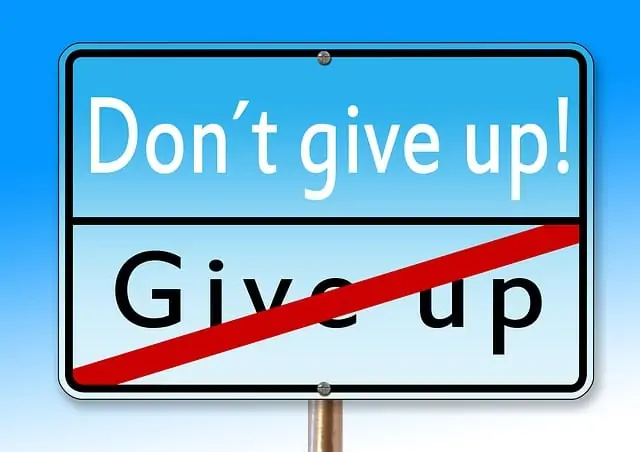There is no doubt that Cluster B personality disordered people (psychopaths/sociopaths/narcissists/borderlines) often leave a devastating trail of psychological damage behind them in the relationships they enter.
The effects of a long term relationship with a psychopath/narcissist can be deep and last a very long time, as any victim of this type of abuse will attest to. How can we recover from these horrendous, toxic relationships?
Recovery from psychopathic abuse demands a multi-faceted approach of creating a safe space away from toxic people, acquiring knowledge on the subject of psychopathy, self care, various forms of psychological healing, and extracting crucial lessons out of the experience with the psychopath.
It was probably not one factor that got you into the relationship with a psychopath, so it will not only be one thing that helps you recover from it.
Here is a brief run down of some top tips to recover from toxic relationships with psychopaths or narcissists:
- Go no contact with them (or very limited contact if necessary).
- Reduce Your Emotional Flashbacks.
- Find a good therapist trained in personality disorders and trauma.
- Educate yourself on psychopaths and narcissists.
- Use mindfulness to get back into your body and feelings.
- Build up a good support system around you.
- Keep up good self care (diet, exercise etc.)
We have listed these tips in a very specific order, since we believe it is extremely important that you do some things first, before anything else, in order to give yourself the best chance of recovering from the damage these toxic people do.
We should emphasize that none of this recovery process is “fair” in one sense in that good people did not ask for such evil to be committed against them and do not deserve to be left with all the horrible symptoms that are so often reported by survivors, like depression, emptiness and numbness, inability to enjoy the things they once did, low self esteem, isolation, suspicion of others and so on.
However, once the abuse has happened then recovery is unavoidable in the sense that no one can turn back time and make the toxic relationship not happen, however much we would like to reverse the horrendous damage a psychopath has caused.
Therefore the only option is for survivors to just be relentless in their recovery and keep pushing forward; with enough time and the correct approach and support then recovery is most definitely possible for all victims of psychopathic abuse.
It is also crucially important to draw as much knowledge and wisdom as possible from the process, both to help oneself and help others going through the same experience.
It is our responsibility to make sure as much good comes from the evil of psychopaths and narcissists as possible in the form of information and resources which can help people better avoid and heal from these predators in the first place.
We will devote a section to each of the general steps and principles we consider most important in recovery from psychopathic abuse.
The list is no doubt not exhaustive and there are other good ideas and tactics that others have come up with in the recovery space; see the sidebar for links to some of these and also our Resources page which links to books and videos packed with additional ideas and advice.
Let’s now run through each of the points we listed in more detail.
1. Go No Contact
This is the first and most crucial step which some people still don’t fully get. It is absolutely imperative that whenever possible you irreversibly cut off all contact with the psychopath/narcissist – no exceptions!
To be more specific, this could mean:
- Leaving your job if the psychopath/narcissist is a boss
- Changing your address
- Changing your phone number and irreversibly deleting theirs
- Changing your email.
- Blocking them on social media, or else deleting your own profile altogether.
- Not responding to any texts, calls, or emails that do come through, however provocative.
- Cutting off any avenues where you can “check up” on the toxic person to see “what they’re up to”.
You must literally break off all ties and contact with the psychopath/narc, period.
Some survivors can fall into the trap of thinking they can somehow now “handle” the toxic person, or they want to see what they are up to now, or even whether they have had some kind of comeuppance.
You must let go of all these rationalizations and just cut them out of your life – completely, totally, permanently.
They are brilliant at building powerful but fake bonds that get you hooked, and also at reeling you back in once you leave (hoovering). Do not give them any way to wriggle back into your life.
For situations where you cannot go no contact – see this guide. The only exception to this we can think of is when children and custody arrangements may be involved. In this case then a small amount of contact may be necessary but you must set very strict, rigid and non negotiable limits and boundaries on this contact.
Work with trusted friends and family and qualified counsellors or family therapists on how to set and enforce these boundaries. Again, do not give the psychopath/narcissist any way back into your life.
See also Richard Grannon’s excellent How to Manage Contact With a Narcissist (affiliate link) course on his website, that will arm you with some excellent tools to understand and manage toxic cluster B disordered people (works for psychopaths as well).
Here are some quick tips in summary for managing unavoidable contact with psychopaths/narcissists:
- Be as boring, dull and uninteresting as possible – they’ll move onto someone else.
- Keep your essential contact with them minimal, timely, brief and dull. Don’t give them anything personal they can use to stir drama.
- Keep strong boundaries up and don’t let them chip away at these boundaries.
- Do NOT get drawn into any drama they try to create.
- Be aware that the Cluster B personalities are always trying to provoke reactions from you. Stay calm and detached to gain the upper hand.

If you absolutely have to deal with a psychopath or narcissist, be as dull and boring as possible – the “gray rock” technique
2. Reduce Your Emotional Flashbacks
We put this one high up because it is so crucial to starting your recovery, but is not widely mentioned in the recovery space. If you are suffering emotional flashbacks to any severe degree after a toxic relationship, you can never really begin the healing process.
What exactly do we mean by emotional flashbacks? Here we are talking about the toxic after-affects of being traumatized repeatedly in the relationship by the psychopath or narcissist, which often leaves people so “raw” and sensitive emotionally that even normal events in daily life can “trigger” them and put them back into a distressing emotional state.
Here are some examples of this:
- Hearing certain words or sounds can trigger you back to traumatic experiences.
- Thinking of certain things or concepts can re-trigger you.
- Even watching TV and films which contain emotionally powerful motifs, like intimacy or conflict, can re-trigger you.
- In work scenarios, you can find yourself overthinking things and struggling to complete tasks that should be unconscious and automatic.
- More generally, daily life just becomes harder to live through than before, because at any moment, you could encounter something that triggers you, opening up more negative mental states.
- A general paranoia and mistrust of others. Innocent questions or statements from others are interpreted in a negative way.
- Any kind of interpersonal conflict or unpleasantness, however brief and mild, can put you back in a state of negativity and shame that often feels global (“it’ll never get better”). As a result, you retreat into yourself and stop being assertive.
- You feel this negativity is affecting your relationships with others, preventing any kind of real closeness or bonding.
- Frequent disassociation of flight from the present moment, into rumination or fantasy or “what ifs” about the past/future. You may also struggle to focus/concentrate.
- A lot of your mental bandwidth is occupied by rumination and brooding over the toxic person and relationship.
- This rumination can sometimes snowball into internal rage attacks, replaying conversations with what you wish you had said, and other “mental gymnastics” which achieve nothing in reality.
- In general, you just feel vulnerable, like you are permanently open to attack and manipulation because pretty much anything in normal life has the potential to trigger you.
Suffering from these emotional flashbacks can be debilitating, as we feel we cannot even properly function in the world, never mind get over the toxic person and relationship.
A lot of recovery resources (including the one I initially wrote), also make other perfectly good recommendations, while leaving out this crucial, foundational step of reducing the emotional flashbacks. You have to really get this sorted before you can do anything else.
The best resource on this is Richard Grannon – Spartan Life Coach. I’ll keep citing his work in this post because it simply is the best I’ve found for actually moving the bar forward in recovery.
Others are great at providing information, but this can only go so far. Grannon in great at providing information but also exercises and courses and conceptual frameworks that can actually get recovery going.
He has emphasized this core issue of emotional flashbacks in a way that others in the recovery space haven’t, and has courses specifically designed to reduce emotional flashbacks that are available for free.
Here are some of his free resources:
- See here, here and here for some shorter bitesize videos on emotional flashbacks.
- See here and here for some longer, in depth videos where he covers emotional flashbacks in more detail.
- Great video: “The narcissist has no power over you if you aren’t flashbacking“.
- See his free course on reducing flashbacks on his Spartan Life Coach site.
- His Fortress Mental Health Protection Channel also offers the same kind of material on reducing flashbacks.
- Following his material, you can easily get reduce them down considerably within a 6-8 week period.
Once you get your emotional flashbacks under control, then you’ll be good to carry on with the rest of your recovery. If you try other things first, without getting these under control, then you may find yourself getting nowhere, so we highly recommend addressing this core issue first.
You also need to be mindful of how this point overlaps with Point 1 (no contact). If you are still in regular, prolonged contact with the psychopath or narcissist, then they’ll still be chipping away at you and re-opening these old wounds, and it will be harder to progress.
Going no contact (or very limited and boundaried contact if children are involved) is crucial to allow healing to occur.
3. Find a Suitable Therapist
Another crucial support system that recovering victims of psychopathy should seek out if possible is some form of psychotherapy or counselling, where they can recount their experiences with the psychopath/narcissist and attempt to come to some kind of clarity or acceptance of it as best they can. A non judgemental, supportive environment that a good therapist can provide can help with this.
However, we need to add a caveat to this; namely that the correct diagnosis of psychopathy and psychopathic/narcissistic abuse is not something that always happens in conventional therapy or counselling.
The correct diagnosis of the will-fully evil behaviour towards the victim and the understanding of the issue of intent on the part of the psychopath is absolutely crucial in the victim being vindicated in terms of what happened to them.
This topic is still not widely known about or “mainstream” knowledge within the general population or even in the therapeutic profession, and despite the excellent academic work of experts such as Robert Hare, it has largely been left to courageous people like Jackson Mackenzie and Richard Grannon to provide resources on the subject to help out the lay person and fully confirm and vindicate what happened to them.
Therefore if you are going to seek out counselling or psychotherapy, it is ideally better to have someone who is specifically trained in severe personality disorders who can make the correct diagnosis of psychopathy or narcissism, or even borderline and histrionic.
A conventional counsellor may miss the issue of intent on the part of the psychopath/narc and in this writer’s experience this can be counterproductive to the process since the victim never feels they are really vindicated or understood as being a victim, not of mis-communication, differing values, or some other therapeutic cliche, but simply of deliberate evil and malevolence.
If the diagnosis of psychopathic/narcissistic abuse is correct, then the conclusion that the person was plainly and simply a victim of evil needs to be fully acknowledged, understood and put on the table by the therapist, after which the client can start to do their own work.
But the victim needs to firstly be fully heard, understood and empathized with in this regard.
Finding the Right Therapist For Recovery From Psychopaths/Narcissists
Video Summary – The 5 Qualities Your Therapist Should Have:
- Knowledge of Cluster B personality disorders and/or Complex Trauma (C-PTSD), preferably both. This is the crucial factor any therapist you work with must have!!
- Healing Focused – willing to talk about the past but also focused on moving forward and moving on from the abuse – build new networks, connections, lifestyle, friends, etc.
- Approaches the therapy with a compassion and humor when appropriate – adds a lightness of touch to the process.
- Down to earth – approachable and treats you like a fellow human and not an object to be studied.
- Will when necessary give negative feedback and challenge your thinking and beliefs when faulty – doesn’t just agree with you 100% of the time.
See here for our find a therapist page for more specifics on finding a suitable professional to help you work through the aftermath of a toxic relationship with a psychopath, narcissist or borderline personality.

Therapy can be vital as a safe, confidential space, but the therapist you use must have the right training and skills to help you recover from toxic cluster B relationships
Crucial issues that will need working through in therapy after Cluster B abuse:
- The traumatic experiences of abuse suffered in the relationship itself. EMDR is a great option for processing trauma, but only once you are somewhat back in your body and feelings.
- Recovering your self confidence and boundaries back after “Gas-lighting” – that chipping away at your perception of reality that psychopaths and narcs are well known for.
- Co-dependency and people pleasing – Psychopaths and narcissists are drawn towards people with weak ego boundaries and an inability to say no. Developing stronger boundaries is crucial to recovery.
- “It’s not really the narcissism (or psychopathy) that’s the problem, it’s how we’re open to it, because we have weak ego boundaries” Richard Grannon.
- Unresolved emotional wounds and trauma – Cluster B personalities are masters at spotting and exploiting unresolved emotional wounds you are carrying from childhood. These need resolving with the Complex-PTSD style framework to stop you being an easy target.
- Resolve your own wounds and vulnerabilities and you leave nothing for the narcissist or psychopath to feed off.
“(Toxic people) can’t force you to feel (dependent on them for love or approval)…..It’s a false narrative, it comes from our co-dependency…If they were trying to do that to a neuro-typical person who didn’t carry the issues that we carry, these invisible wounds from childhood, the normal person would tell them to f**k off, and rightly so, because they have the ability to say no, and we don’t, and we have to learn it”
Richard Grannon – Spartan Life Coach
4. Educate Yourself on Psychopathy & Narcissism
Another crucial step in the road to recovery is to absorb as much information as possible about the subject of psychopathy, sociopathy and toxic personalities in general. This will help you understand and have a conceptual framework with which to interpret the horrendous experiences the psychopath/narc inflicted on you.
It is important to take in as much of this information that already exists about psychopaths and narcissists as possible, to have the most informed possible view about who these people are and why they did what they did to you.
Our Resources Page is an excellent starting point, with links to books and resources from knowledgeable people on the subject.
Here are some essential must reads for getting started:
- Psychopath Free by Jackson Mackenzie (Stage 1 – understanding)
- Whole Again by Jackson Mackenzie (Stage 2 – moving on).
- The Empathy Trap by Tim and Jane McGregor.
- Without Conscience by Dr Robert Hare.
Here are some good YouTube Resources on psychopathy and narcissism:
See also here for our definitive resource guide to recovery from toxic relationships for a gathering of lots of different resources to educate yourself on personality disorders and abusive dynamics.

Aim to digest as much material on personality disorders as possible after a toxic relationship, to better understand what happened to you and why.
5. Mindfulness As A Recovery Tool
Mindfulness meditation is another important psychological tool which can help a person get in touch with and eventually heal the trauma a psychopath caused them.
In a formal sense mindfulness relates to performing certain meditations to non judgementally tune oneself into feelings, thoughts and bodily sensations in the present moment.
It is a gradual, subtle practice whereby regular meditation over a longer period of time can help a person slowly come to terms with and let go of unpleasant experiences which have happened in their lives, including psychopathic or narcissistic abuse and toxic relationships in general.
The meditations usually involve focusing on a central phenomena or “anchor point”, most often the movement of the breath in and out of the abdomen or nostrils. The object is simply to focus on this central anchor point, and whenever the mind wanders, notice where it went and bring it back to the anchor point.
Through regular practice of this simple exercise, focusing initially on the breath and then other outer (and inner) phenomena such as body sensations, sounds, thoughts and feelings, a surprising peace and clarity can come in relation to past experiences.
Over time people find they can see more clearly and make peace with their past, even extremely distressing events like prolonged, toxic relationships.
We should emphasize here that mindfulness meditation is a very slow and gradual process and will not deliver results overnight. Whilst it often delivers some kind of benefit almost immediately, to reach the stage of fully letting go of past trauma will likely require regular meditation practice over a number of months or years.
For this reason, the person has to be in the process for the long haul and should not expect quick results. They should ideally be willing to set some time aside every day for meditation and be willing to wait and be patient for results. Mindfulness is perhaps best used in conjunction with other methods such as exercise and psychotherapy, as well as reducing emotional flashbacks.
That said, the benefits of mindfulness are that it is a totally free, portable, holistic method of healing that does not require any medication and is simple to take up. One does need time and commitment, but that is all they need and survivors can therefore see meditation as a free form of healing they can take with them anywhere they go.
If you are looking to give Mindfulness a try then an excellent way to get into meditation is the 8 week introductory course given by Mark Williams. This comprises of a series of 8 short meditations that run on a weekly cycle.
Practice these meditations once or twice a day for the 8 weeks and you will almost certainly gain some benefit.
Mindfulness Course – Week 1 – Breathing Anchor
- Week 2 & 3 – Body Scan
- Week 4 – Breath and Body
- Week 5 – Sounds and Thoughts
- Week 6 – Exploring Difficulties
- Week 7 – Befriending
- Week 8 – 3 Minute Breathing Space
See also Yutthadhammo Bhikkhu’s brief 3 part introduction to meditation
- How to Meditate I – What is Meditation?
- How to Meditate II – Sitting Meditation
- How to Meditate III – Walking Meditation
You can convert these videos into audio files if you wish using a Youtube to MP3 Converter so you have a portable version to take around with you on MP3 players and other devices.
See also our post on using meditation to work through the emotional numbness and flatness that is so common after abusive Cluster B relationships
6. Build a Support System Around You
A horrific relationship with a psychopath will no doubt have left you with your guard up as to who else you allow into your life. In one sense this is a good thing; a self protective mechanism to stop you getting hurt again. Many victims put their guard up too much initially but this is totally understandable.
It is important to eventually build (or rebuild) supportive connections in your life after the psychopath/narcissist has gone.
Indeed one thing these people are very skilled at is isolating you from any support systems so they can manipulate and control you more easily. You need to take steps to reverse this damage they caused.
How quickly you do this is totally up to you and there should be no prescriptions as to when. Some people can start rebuilding almost straight away; others need longer before they can even begin to trust and allow others into their life again. There are no right or wrong answers and you should do whatever feels comfortable.
Most importantly the survivor needs to learn from their experience with the psychopath and therefore know what type of person they need to allow (and NOT allow) into their lives from that point on. This means they have to have a criteria of safe people to let in, and dangerous people to avoid and be wary of.
The person themselves will have a very good idea of the traits to avoid from their own painful experience; nevertheless it can sometimes be difficult to articulate all of these traits and this is where a checklist or set of criteria can be useful.
Similarly, there are positive traits you should actively look out for in new people you meet to determine whether they are worth accepting into your life as close friends.
After a traumatic experience with a psychopath it is utterly acceptable to be uncompromising and demanding in terms of the traits you look for in people you allow to get close to you.
Here are some pointers of high quality people who are worthy of trust and respect:
- People who show themselves to be moral, decent people in the way they treat everyone around them over a long period of time. Do not be taken in by an initial superficial charm. True character is displayed over time and not on first impressions.
- Look for highly empathic people, able to feel the emotions of another and put themselves in another person’s shoes. This is what the psychopath lacked.
- Look for kind natured, non judgmental people.
- Look for honesty and integrity in people, in contrast to the lying and manipulative tendencies of psychopaths.
- Look for uncomplicated people without agendas, as opposed to political, scheming types who are constantly “up to something”.
- Look for people who are supportive of growth and development in others, not restricting or knocking people down.
- Look for people who notice your qualities and virtues as a person and value you for them.
- Be wary of “dangerous” people who may be funny and entertaining on the surface, but only do this by selling out and mocking and victimizing others. Again the way people behave towards and treat others is a crucial aspect to observe in them.
7. Keep up Good Self Care
Basic self care is also another crucial factor survivors must keep working on in the aftermath of toxic relationships. This just means looking after oneself even in small little things in one’s day to day life.
Abusive relationships can leave a person depressed and lacking in motivation to do even basic daily chores, and survivors must fight against this tendency and keep up self care routines.
This can entail a number of things. Here is a quick checklist:
- Keep up basic personal hygiene – showering, washing and changing clothes.
- Taking care of one’s general appearance – washing and combing one’s hair, shaving properly if necessary, making sure you are well presented in terms of clothing and general demeanor and so on.
- Exercising as frequently as possible – join a nearby gym if necessary. Swimming is great for mindfulness and relaxation but most forms of exercise are good.
- Making an effort to eat healthy, high quality food. Frozen and microwaved food should ideally be avoided.
- Getting adequate and good quality sleep and rest.
- Creating a safe, comfortable, private space for oneself that is free of any toxic people.
These basic routines may not sound important to some but are crucial to keeping up self esteem and to some extent dealing with depression, particularly in the case of exercise.
Taking even small steps to keep up one’s personal appearance and self respect is very important in sending out the right messages and starting as you mean to go on in the recovery process. To let your image, self esteem and health slip is to let the psychopath or narcissist win.
Psychologist Shawn T Smith superbly addresses the issue of depression in some of his work. People trying to recover in this regard need to take things in small steps. There can be a vicious cycle that can form where depression kills the very motivation that would get the person out of the depression.

Exercise can a great way of keeping mood and health up after toxic relationships
His way to approach this issue is building up motivation gradually:
“If you plan for the day is to get to the gym, then aim to do so, but even if you only get as far as the locker room and then turn around and go home, well, you still got out the house and got to the gym. Give yourself credit for that and build up motivation in small steps.”
This is sometimes the approach that is necessary for people rebuilding from a very low point such as from psychopathic abuse. Despite it becoming somewhat of a cliche, positive thinking is definitely very important for people in this position.
Survivors need to learn to give themselves credit for what they have done and not beat themselves up so much on what they haven’t done.
In this way self esteem and motivation can gradually build back up again and get the person back to a place where they are happy with themselves and their life again.
